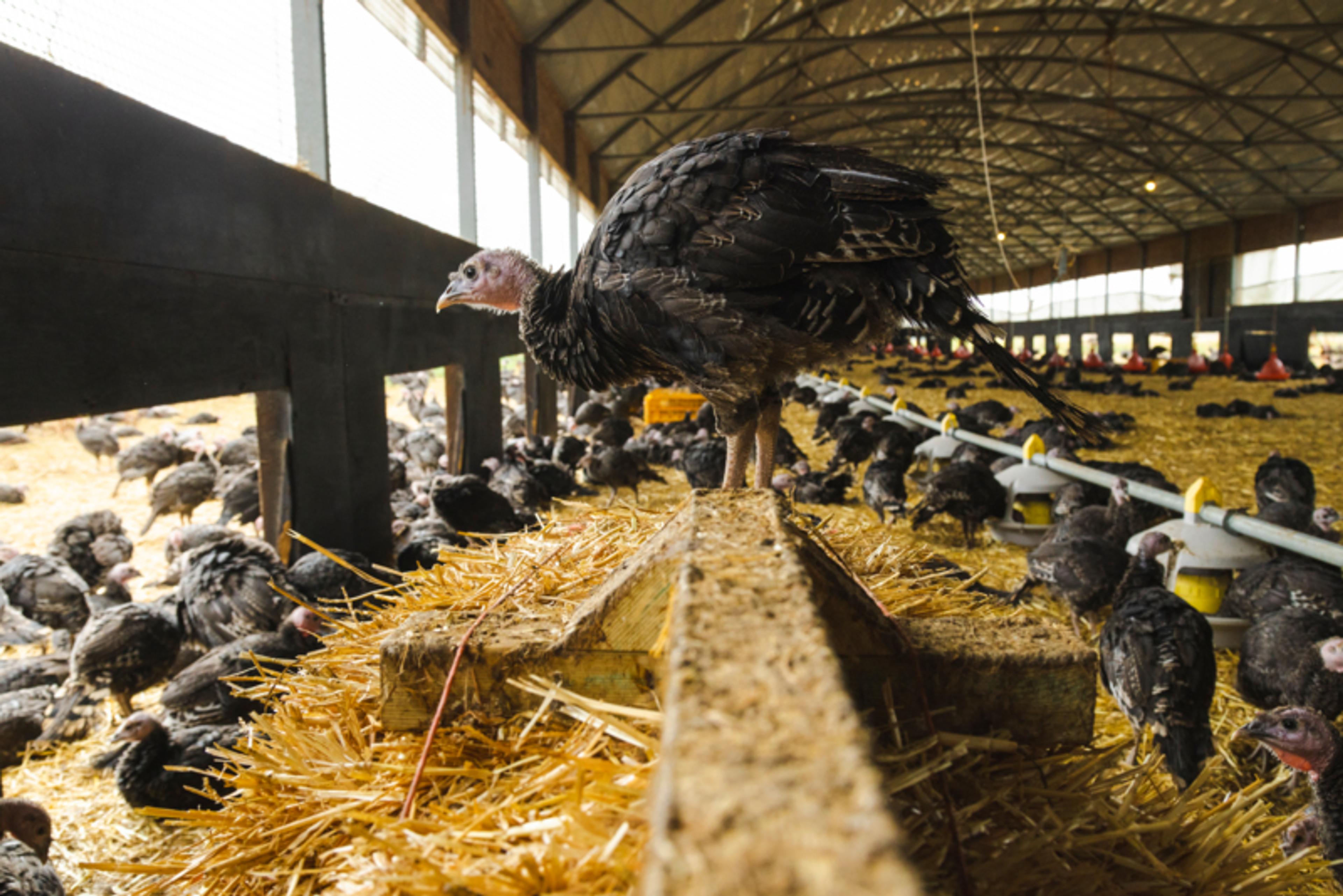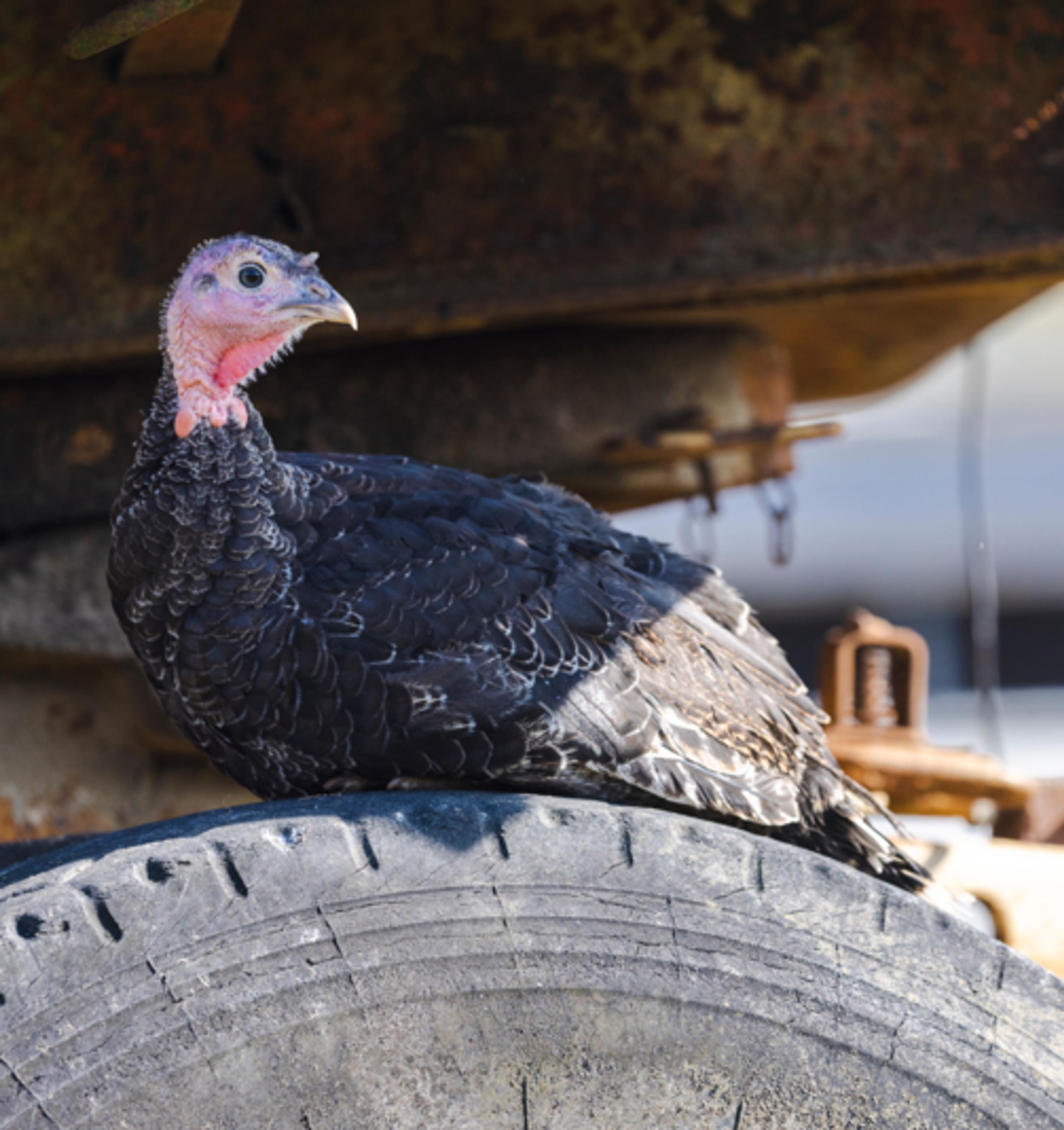
Turkeys
Turkeys
More than 700 RSPCA welfare standards must be met for turkey to be labelled RSPCA Assured.
Turkeys can be kept on free-range or organic farms or live in barns with plenty of space and natural light
The RSPCA standards require...
Plenty of space to move around
Birds can exercise, flap their wings and behave naturally.
A comfortable environment
Bedding must be clean and dry with an average minimum depth of 5cm.
Pecking objects such as hanging rope and straw bales
These ‘enrichments’ encourage birds to be active and carry out their natural pecking and foraging behaviour.
Access to natural light cycles
Sheds must give turkeys natural daylight during the day. There should be at least eight hours of darkness to allow them to rest.
Raised perches
Turkeys like to roost on raised perches at night, allowing them to rest, clean their feathers and watch the rest of the flock.
The legal minimum...
Less space
Turkeys may not be able to move freely, rest undisturbed or move away from aggressive birds.
Shallow litter
There’s no minimum depth for bedding. Too little can increase the risk of turkeys suffering leg health issues, which can cause discomfort, pain and suffering.
No requirement for ‘toys’ to peck at
If birds aren’t encouraged to peck at objects, they’re more likely to turn to harmful behaviours like pecking at each other's feathers.
Less time to rest
There are no time limits for how long turkeys are given light and darkness. Turkeys’ eyes can be damaged by too much dim lighting or by long periods of light.
Fewer inspections
Turkeys must be inspected at least once a day. The RSPCA’s welfare standards require three checks per day to ensure they are well and healthy.
Out in the field

“Free-range higher welfare turkeys on RSPCA Assured members’ farms must be given trees and bushes to protect them from bad weather and predators. This makes the birds feel safer – and I love watching them use the range and perches more as a result when I’m visiting a farm.”
Rio Peel, RSPCA Assured assessor